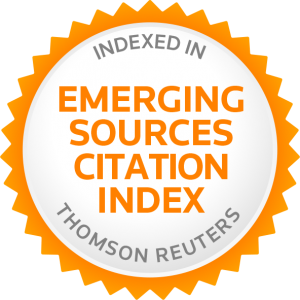DHQuarterly starts 2017 with some great news – the journal is now indexed in Thomson Reuters’ Web of Science, in the Emerging Sources Citation Index.

One of the most frequent queries DHQ gets is “What is your Impact Factor?”. The digital humanities journal does not yet have one. IFs are generated by Thomson Reuters. It is very hard for an independently published, open access journal to get an IF.
DHQ is published by ADHO rather than an established University Press, so the journal does not qualify for automatic inclusion in Thomson Reuters databases. While DHQ has been indexed in Google Scholar for many years, it still does not have that impact factor: DHQ needs to get into Thomson Reuters index first. Over the past three years DHQ has been trying to get indexed with Thomson Reuters. It has been a lengthy process the journal has had to keep on top of. DHQ is therefore super excited to be included in the Emerging Sources Citation Index (ESCI), which is now the 1st step towards Impact Factor. Being in the ESCI does not mean to get an impact factor – but the journal is now discoverable via Web of Science, and in addition their citations count in other IFs.
After getting into the Emerging Sources Citation Index, DHQ will now undergo the more in-depth editorial review for potentially getting an impact factor. It might take two years (or more) to get a Thomson Reuters Impact Factor. DHQ may never – but they are excited to be on the way, and trying!
You can read more about The Emerging Sources Citation Index here:
http://editorresources.taylorandfrancisgroup.com/what-is-the-emerging-sources-citation-index/
And check the DHQuarlerly thread on Twitter here: https://twitter.com/DHQuarterl
